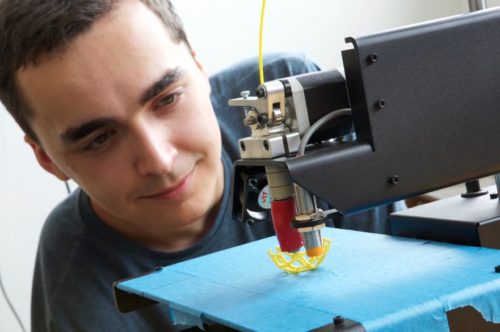Opis tego kierunku w języku polskim znajdziesz tutaj:
https://studiawanglii.pl/courses/inzynieria-mechaniczna-2/
Mechanical engineering is a large, established field of engineering. It covers the design and manufacture of small components and devices right through to large scale items and systems. Also, recent, rapid developments in technology, such as 3D printing, have changed the face of mechanical engineering. To help you to keep up-to-date with these changes and to become a mechanical engineer of the future, we work closely with industry to ensure you are as well-prepared as possible for a career in this exciting and rewarding industry.
Our Mechanical Engineering courses are highly practical and use real examples and projects from industry. On this course you’ll be guided how to analyse and solve mechanical engineering problems by producing your own creative and innovative solutions using the latest technology.
In the School of Science and Technology we pride ourselves on our hands-on approach to teaching and giving you real-world experience. With our brand-new engineering courses we are taking these experiences to the next level with a revolutionary approach to teaching engineering.
We are partnering with industry every step of the way to ensure that you become the very best engineer of the future by working with all types and sizes of engineering organisations. In our innovative approach, you’ll spend a large proportion of your time each year applying theory to live, industry-led projects. You’ll also have the opportunity to apply for a year-long work placement to boost your industry knowledge even further.
With the focus firmly on problem-solving and live project work, we aim to give you three to four years of industry experience before you graduate. Who wouldn’t want that on their CV?
Careers and employability
You’ve probably already got some idea of the career path you want to take. Many of our graduates go on to work in engineering-based roles, but it’s worth remembering that the skills you learn on an engineering degree are transferable to a variety of careers. Research, presentation, team working and analytical skills are highly valued by employers in various professions, both related and unrelated to engineering.
Engineering graduates are in demand as they are attractive to a wide range of employers due to their analytical thinking, problem-solving, and strong numeracy skills. You’ll be well-placed to secure a career in a range of sectors, including the armed forces, logistics, teaching, IT, and banking. Recent NTU graduates have gone onto engineering positions in a variety of organisations including Pitney Bowes, the RAF, Rolls Royce, and Siemens.
Many graduates also choose to undertake further study on Masters-level courses, or MPhil and PhD research degrees.




















